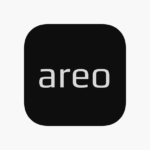Social media has become a powerful tool for marketing in various industries, including real estate. For new businesses, leveraging social media effectively can significantly boost visibility, engagement, and sales. This article explores ten real estate social media marketing strategies that can help new businesses thrive in a competitive market.
Tips That Agents Should Embrace
- Engage with Followers: Respond to comments, messages, and inquiries promptly to build a community and foster relationships.
- Provide Valuable Content: Share market insights, homebuying tips, and industry news to position yourself as an expert.
- Maintain a Consistent Presence: Regularly post updates and engage with your audience to stay top-of-mind.
- Use High-Quality Visuals: Post professional photos and videos to attract more attention and showcase properties effectively.
- Share Client Testimonials: Highlight positive feedback from clients to build trust and credibility.
- Utilize Social Media Analytics: Track performance metrics to understand what content resonates with your audience and refine your strategy.
- Collaborate with Influencers: Partner with local influencers to expand your reach and tap into their follower base.
- Join Relevant Groups and Forums: Participate in online communities to network and share your expertise.
- Stay Updated on Trends: Keep abreast of the latest social media trends and tools to stay competitive.
- Manage Expectations: Set realistic goals and communicate transparently with clients about what social media can achieve.
Using Social Media for Real Estate
Social media platforms provide a unique opportunity for real estate businesses to connect with potential clients. By sharing engaging and informative content, agents can build trust and establish themselves as industry experts. Platforms like Facebook, Instagram, and LinkedIn are ideal for reaching different demographics. Facebook groups and pages can be used for community engagement and property listings. Instagram’s visual-centric nature is perfect for showcasing property photos and virtual tours. LinkedIn can be utilized for professional networking and sharing industry insights. Consistency and authenticity are key to successful social media marketing in real estate.
Social Media House-Buying Trends from COVID-19
The COVID-19 pandemic has reshaped how people buy homes, with social media playing a significant role. Virtual tours and live streaming have become essential tools for showcasing properties. Buyers are increasingly using social media to search for homes and gather information. The demand for virtual open houses and online consultations has surged. Real estate agents have had to adapt by offering more digital content and remote services. Social media platforms have become vital for staying connected with clients and providing timely updates on market conditions and property listings. This trend is likely to continue as buyers prioritize convenience and safety.
Real Estate Social Media Content
Creating diverse and engaging content is essential for a successful real estate social media strategy. Property listings with high-quality photos and detailed descriptions are a must. Virtual tours, video walkthroughs, and drone footage can provide immersive experiences for potential buyers. Sharing market updates, tips for homebuyers, and behind-the-scenes glimpses into the real estate process can also add value. Client testimonials and success stories can build credibility and trust. Interactive content such as polls, Q&A sessions, and live streams can boost engagement. Consistent branding and a clear content calendar are vital for maintaining a cohesive online presence.
Real Estate Social Media Ideas
Innovative social media ideas can set a real estate marketing strategies business apart. Hosting virtual open houses and live Q&A sessions can attract potential buyers. Creating neighborhood guides and spotlighting local businesses can showcase the community’s appeal. Sharing home improvement tips and DIY projects can engage followers and provide useful information. Celebrating milestones and client success stories can humanize the brand. Running contests and giveaways can increase visibility and engagement. Collaborating with local influencers or partnering with home decor brands can expand reach. Regularly updating followers on market trends and offering exclusive previews of new listings can maintain interest and engagement.
Real Estate Social Media Statistics
Understanding social media statistics can guide effective real estate marketing strategies. Studies show that 73% of homeowners are more likely to list with an agent offering video content. Properties with high-quality images receive 118% more engagement than those without. Social media platforms like Facebook and Instagram account for over 60% of all real estate web traffic. Video content generates 49% faster growth in revenue compared to other types of content. Mobile users spend an average of 2.5 hours per day on social media, highlighting the importance of mobile-friendly content. These statistics underscore the significance of a robust social media presence in real estate marketing.
Benefits of Social Media for Real Estate
Social media offers numerous benefits for real estate businesses. It provides a cost-effective way to reach a large and targeted audience. Enhanced visibility and brand awareness can lead to increased leads and sales. Social media platforms enable direct communication with potential clients, fostering relationships and trust. The ability to showcase properties through high-quality visuals and virtual tours can attract more buyers. Social media also allows for real-time feedback and engagement, helping agents tailor their strategies. Additionally, analytics and insights provided by social media platforms can inform data-driven marketing decisions. Overall, social media is a powerful tool for growth and success in the real estate industry.
Conclusion
For new real estate businesses, social media marketing is essential for success. By embracing effective strategies, agents can boost their online presence, engage with potential clients, and drive sales. From leveraging various social media platforms to creating diverse and engaging content, the potential of social media in real estate is vast. The COVID-19 pandemic has further highlighted the importance of digital marketing, with virtual tours and online consultations becoming the norm. Understanding social media trends, statistics, and best practices can help real estate businesses navigate this dynamic landscape and achieve their goals. Embracing social media marketing is no longer optional but a necessity in today’s digital age.







